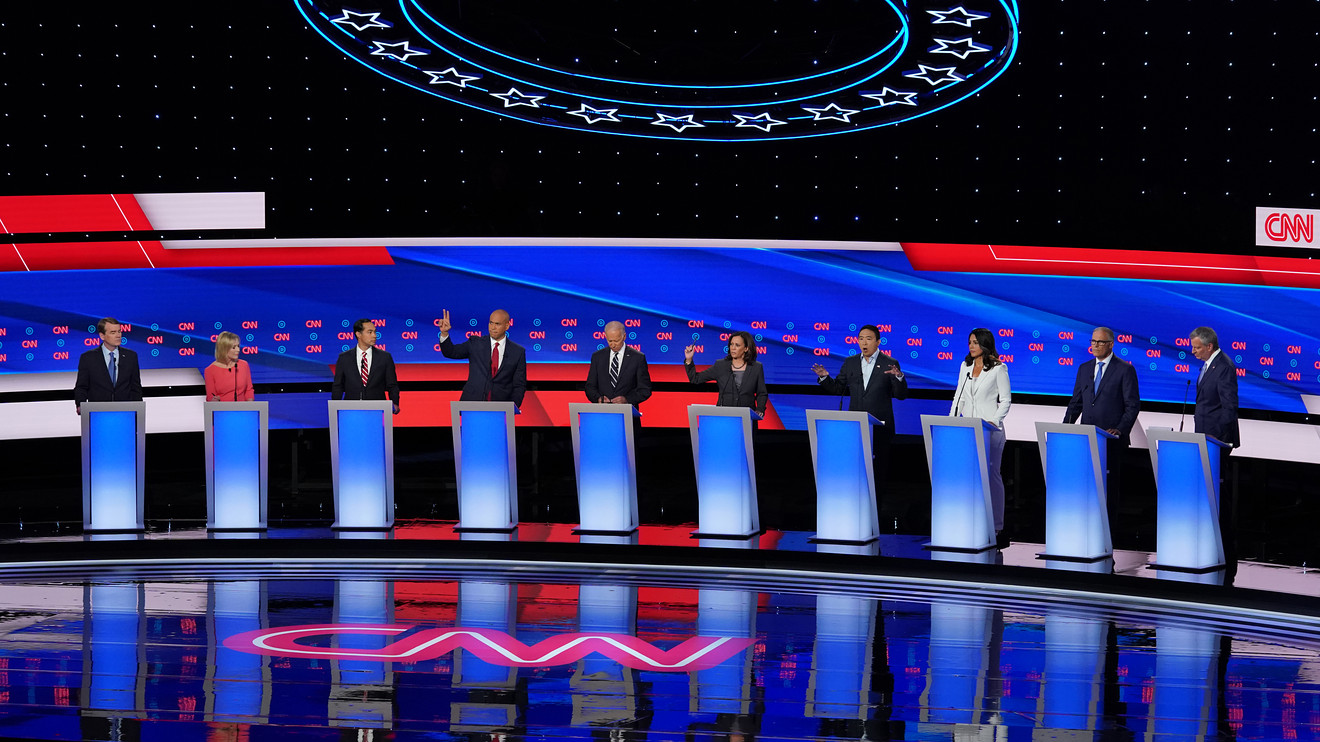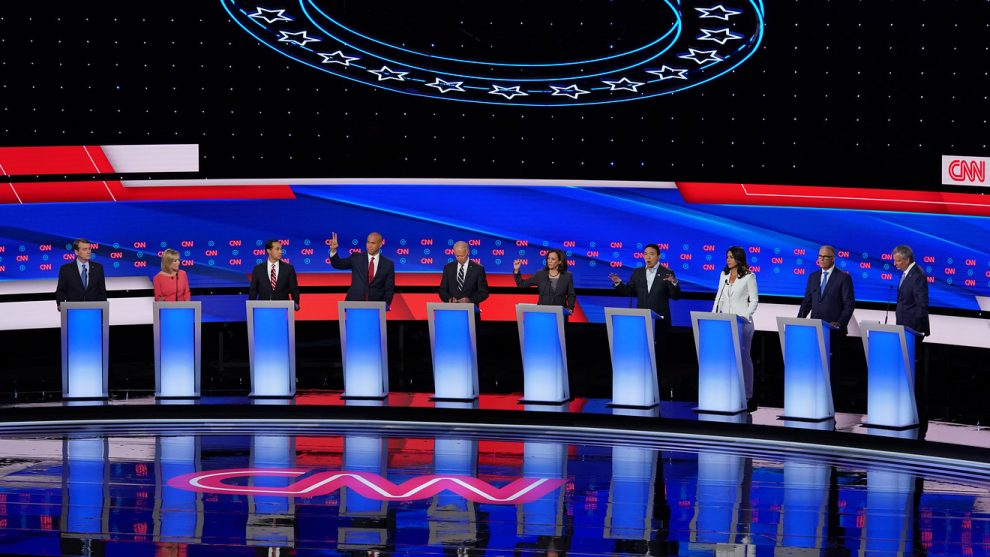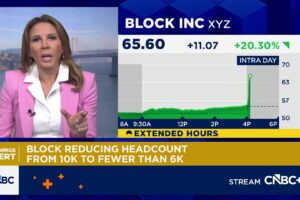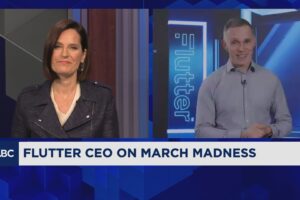
The presidential candidates had a lot to say during the Democratic debates this week — just not when it had to do with retirement security.
Americans’ retirement preparedness (or lack thereof) was hardly discussed among the 20 candidates spread over two nights, nor was Social Security, pensions or programs to assist the elderly. Many candidates did speak about “Medicare for All,” but that’s a proposal that would help people of all ages. The focus was also on student loan debt, criminal justice and immigration.
Part of the problem is in moderation. The moderators control most of the discussion, but they split the time among 10 candidates over two hours each night. Retirement security is important, but not nearly as controversial as topics involving race, immigration and health care. President Trump has distracted many Democratic candidates with his tweets and administration’s involvement in family separations at the border, said Matt Dalek, professor of political management at George Washington University. “These are huge, important issues that sucked the proverbial oxygen out of the room,” he said. “And there’s not a whole lot of space left to talk about the equally important, but less politically charged topic, of retirement.”
See: How to fund a 30-year retirement without stressing out over every dollar
Overlooking these important conversations, however, ignores a large segment of loyal voters. Voters over 45 have outnumbered their younger counterparts in the voting booths for the last 40 years. Almost three-quarters of Americans 65 and older voted in the 2016 presidential election, compared with 46% of 18- to 29-year-olds, according to the U.S. Census Bureau. And the number of “older” voters keeps rising, AARP said.
Retirement is also a subject that affects nearly everyone eventually, as younger Americans struggle to save enough for their futures and some middle-aged workers realize they may not have enough to retire in the next 10 or 15 years.
Social Security is rarely mentioned during political debates, even though it is facing a major setback in the next decade and a half. The two trust funds that support the system are expected to fall short of the obligations they have to retired and disabled Americans, which means those people will only receive about 80% of the benefits they’re owed, according to the Social Security’s trustees report.
The fact that the Democrats agree Social Security is good for the country and doesn’t need to be radically restructured is one reason they probably didn’t talk about it this week, Dalek said.
But Social Security has also been considered a “third rail of American politics,” said Cal Jillson, professor of political science at Southern Methodist University in Dallas, especially in terms of cutting or limiting benefits, which Republicans would more likely propose.
There were a few other missed opportunities, Dalek and Jillson said. Democrats could have mentioned the fiduciary rule, a law passed under the Obama administration to regulate financial advisers and require they work in their clients’ best interests when advising on retirement plans, Jillson said. The Trump administration killed the rule early in his presidency, and now the Securities and Exchange Commission and some states are looking to create their own statutes.
Also see: How to make your retirement money last as long as you need it
They could have also brought up how many Americans have so little in retirement savings, though the smaller percentage of people prepared may also be why they did not talk about it, Jillson said. The retirement savings gap, which is the difference between what people have saved and what they should have saved, was $28 trillion in the U.S. in 2015, according to the World Economic Forum, a Cologny-Geneva, Switzerland-based nonprofit that researches international financial affairs. That figure is expected to jump to $137 trillion by 2050.
The blue candidates could have highlighted Trump’s budget last year, which threatened cuts to Medicare and Medicaid, Dalek said. “The Democrats could make a strong case that would have overwhelming support among voters, that they are better equipped to guard the retirement security promises that the country has made to citizens,” he said.
The current Congress has noticed the issues surrounding retirement security. Legislators have proposed bills that would encourage workers to save more for retirement, and incentivize companies to offer better — or any — plans to their employees. “It is something people should be talking about,” Jillson said.













